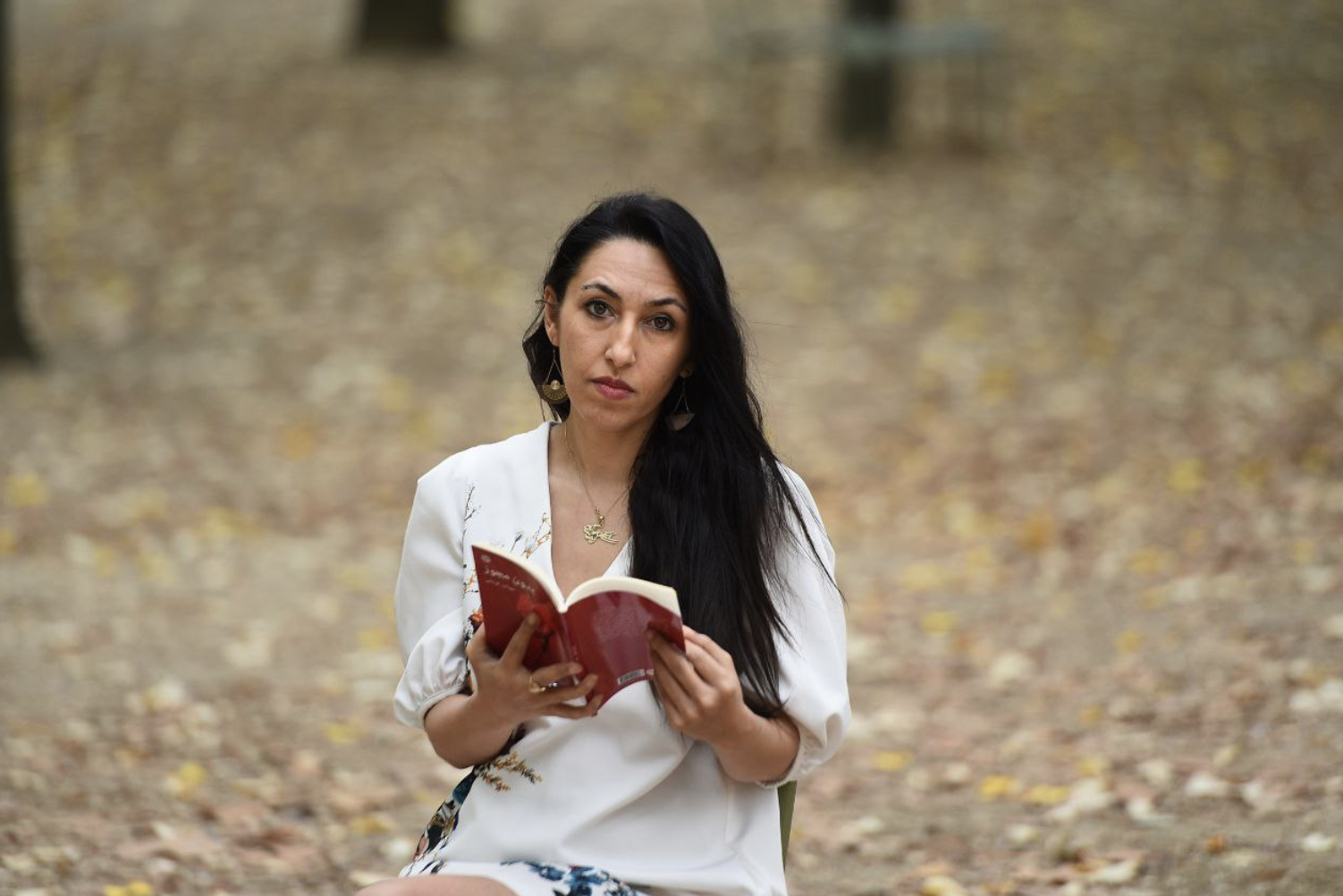Born in Tehran in 1983 into a politically active family, Mahtab Ghorbani was deeply influenced by the struggles and resilience inherent in her personal history. Her father was a political prisoner in 1980s Iran, which shaped her understanding of resistance and justice from an early age. She went on to study Persian literature at university, where her passion for writing and human rights activism began.
At the age of 17, she was arrested for the first time and, over the years, suffered three more arrests because of her human rights activities and her writing. All of her works have been banned in Iran, reflecting the difficult environment in which she created. In 2016, she left Iran with her six-year-old daughter and has been living in France as a political refugee for seven years. As a single mother, her journey has been marked by profound personal and professional transformations.
During her time in France, she has published four books in Persian and a collection of poems in French. Her first novel, ‘Écrire avec un couteau’, won the Foreign Literature Prize of the Centre du Livre International in France. Over the past seven years, she has been invited to more than thirty literary festivals in various cities and countries, including Belgium, Sweden, the Netherlands and France. Her poems have been published in two French anthologies, testifying to the growing recognition of her work in the French-speaking literary world.
She has taken part in numerous artist residencies, including two major three-month residencies in Luxembourg, where she worked with the renowned Iranian poet Dr. Mehdi Mousavi and translated six of his poems into French. As the first female Iranian writer, she has had the honour of speaking twice at the French Senate. She was also the only Iranian writer to take part in a tribute to Salman Rushdie, alongside a Charlie Hebdo cartoonist.
Her involvement in secularism committees in France has led her to give over fifty talks in schools and lycées, where she shares her experiences and defends human rights. Her work has also been widely covered by major newspapers in France, Belgium and Luxembourg. Notably, Luxembourg's leading newspaper devoted a full page to her, highlighting her contributions to literature and activism.
In 2023, she was recognised as one of five committed migrant women in France for her dedication to human rights. She is also very active on social networks, with her Instagram account, which has over 49,000 followers, being an important platform for literary engagement and discussion.
Project for a residency at the Saline Royale (2021)
‘My project is to finish a novel I've been working on for three years. The novel tells the story of women political prisoners in Iran after the Islamic revolution. I interviewed over three hundred women to write this novel. My novel bears witness to the suffering that Iranian women have endured over the last forty years. Suffering that may be impossible for others in the world to believe. The narrator of the book is the daughter of a prisoner who was executed and was given a booklet. Writing this book is forbidden in Iran and it is impossible to publish it. I want to publish my second book in French. I want to write without censorship. I want to recount the pain, love and hope of these women in the context of literature.’
Project for a residency at the Saline Royale (2023)
‘I am currently preparing my second collection of poetry, entitled Le Passé est une Plaie. This book, which will be dedicated to the great French poet Saint-John Perse, will contain poems about exile as rebirth. Exile as an opportunity to breathe in freedom. In this collection, I intend to establish a link between oriental poetry and the experience of reading French poets. The poems will be written in Persian and translated into French by my translator, Madame Niloufar Sedighi. The book will be published in 2026 by Bruno Doucey.

